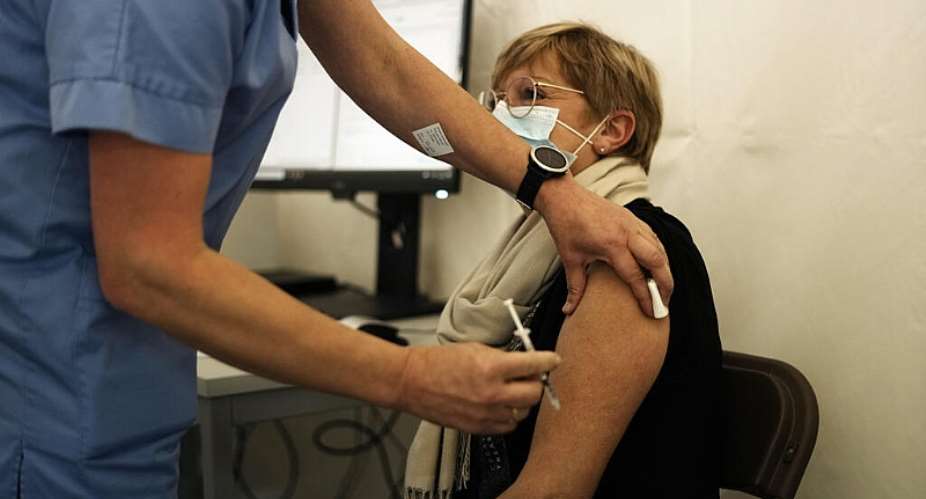A top French health official on Monday urged millions of people to get a second booster shot against the coronavirus as the country braces itself for another wave of the disease.
More than 155,000 people have died in France since the beginning of the pandemic, officially declared by the World Health Organization in March 2020.
More than two and a half years on, the circulation of the Covid-19 virus has again intensified in France during what is described as an eighth wave.
Around 8,000 new cases have been reported in the past week, according to the Santé Publique France agency, with over 4,000 new hospital admissions, over 300 of those in intensive care.
The government is again putting the emphasis on vaccination as key to protecting the most vulnerable members of the society.
"Among eligible people less than 50 percent have received their second booster," said Prof Elisabeth Bouvet, head of the vaccination commission at France's national health authority (HAS) on Monday.
"We need to correct this since there is currently a new epidemic wave and the risk factors and vulnerability to Covid-19 still affect the same people."
Adapted to Omicron sub-variants
During the new vaccination campaign which began on Monday, people over 60, residents of retirement homes, those with weaker immune systems, pregnant women and carers are being encouraged to receive an extra dose of vaccines adapted to the Omicron strain of the virus.
Moderna and Pfizer/BioNTech have led the way in configuring vaccines to combat the Omicron sub-variants for longer periods.
The so-called "bivalent shots", approved by the European Medicines Agency last month, target the BA.1, BA.4 and BA.5 Omicron variants, now responsible for the bulk of new cases.
"What is really important is to protect the vulnerable," added Bouvet. "Not to vaccinate the general population who are not at risk - though they may of course become infected - but who will not develop serious forms of the disease."
On Friday, Brigitte Autran, the president of Covars - a newly established body to analyse and monitor the progression of infectious diseases - said that masks should be worn on public transport as well as in public spaces.
On 16 May, President Emmanuel Macron's government ended the compulsory use of face coverings on buses and railways as the number of coronavirus cases fell.
"For the moment, there is no spectre of a nasty variant coming on the horizon," Autran told French broadcaster France Info. "That's what could change the game."





 Akufo-Addo’s govt is the ‘biggest political scam’ in Ghana’s history – Mahama ja...
Akufo-Addo’s govt is the ‘biggest political scam’ in Ghana’s history – Mahama ja...
 Performance Tracker is not evidence-based — Mahama
Performance Tracker is not evidence-based — Mahama
 Four arrested for allegedly stealing EC laptops caged
Four arrested for allegedly stealing EC laptops caged
 $360 million IMF bailout not enough for Ghana – UGBS Professor
$360 million IMF bailout not enough for Ghana – UGBS Professor
 Shrinking Penis Allegations: Victim referred to trauma hospital due to severity ...
Shrinking Penis Allegations: Victim referred to trauma hospital due to severity ...
 Adu Boahen Murder: Case adjourned to May 9
Adu Boahen Murder: Case adjourned to May 9
 ‘I've health issues so I want to leave quietly and endure my pain’ — Joe Wise ex...
‘I've health issues so I want to leave quietly and endure my pain’ — Joe Wise ex...
 Let’s help seek second independence for Ghana before NPP sells the country – Law...
Let’s help seek second independence for Ghana before NPP sells the country – Law...
 New Force aims to redeem Ghana and West Africa — Nana Kwame Bediako
New Force aims to redeem Ghana and West Africa — Nana Kwame Bediako
 ‘I didn't say I would buy Ghana if voted against; I said I’ll buy it back from f...
‘I didn't say I would buy Ghana if voted against; I said I’ll buy it back from f...
